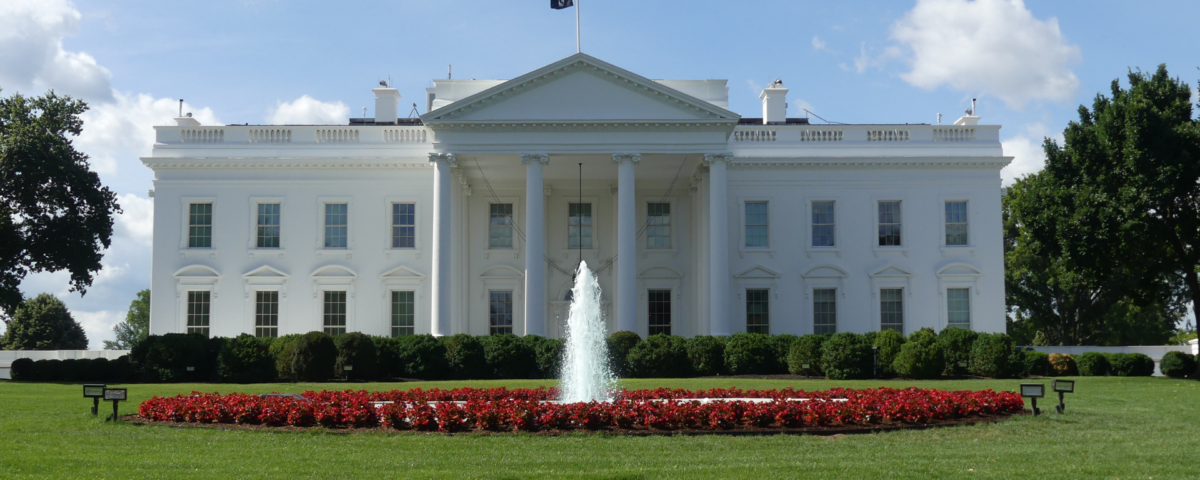
Blending Human Expertise with Machine Intelligence: How AI Is Elevating Online Market Research
April 24, 2025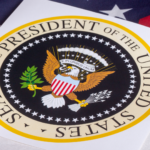
Pardon Me? Rethinking Presidential Power
May 1, 2025Few aspects of presidential power provoke as much public scrutiny as the use of pardons, especially when granted preemptively to family members. This practice raises ethical questions that cut across political and social lines. In part 1 of our 2 part series on presidential pardon, we explore if people feel preemptive pardons for family members are ethical or not. To gather the data, we asked respondents how ethical they felt about the use of such pardons, using a five-point scale in our recent wave of research-on-research.
For reporting purposes, responses were grouped into Bottom 2 Box (B2B), which includes both ‘completely unethical’ and ‘somewhat unethical’, and Top 2 Box (T2B), which includes ‘somewhat ethical’ and ‘completely ethical’.
Overall
Nearly half of respondents (48%) found it either somewhat or completely unethical for a president to issue preemptive pardons to family members, while only 19% viewed it as ethical. A notable 33% remained neutral or without strong opinions, reflecting a split in how the public navigates the complexities of presidential privilege.
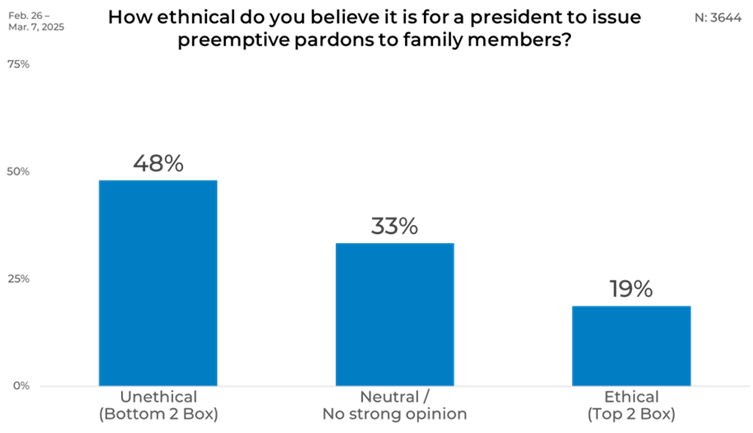
Age
When breaking the data down by age, the differences were more pronounced. Younger respondents aged 18-24 and 25-34 were less likely to find the action unethical (38% and 37%, respectively) and more likely to be neutral (42% and 38%). Older individuals, particularly those 45 and over, were increasingly critical. Among those 65+, 61% viewed preemptive family pardons as unethical, with only 15% seeing them as ethical. Age clearly played a role in shaping perceptions.
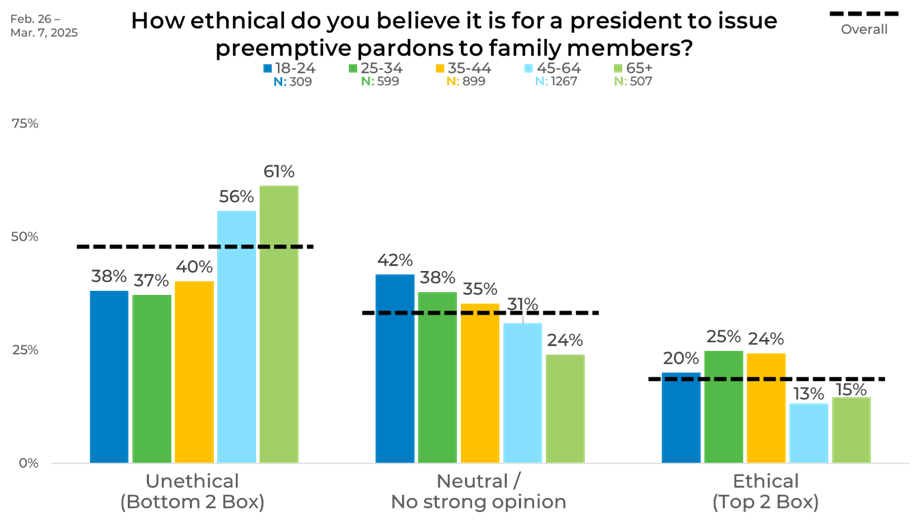
Income
Income also seems to have an influence on people’s opinions on this subject. Respondents earning under $20,000 were split, with 40% seeing the act as unethical and 44% staying neutral. Those in the mid-income brackets ($40,000-$99,999) were more likely to call it unethical, hovering around 49%-52%. The highest income group ($100,000+) was the most accepting, with 28% viewing the action as ethical—the largest proportion of any income group.
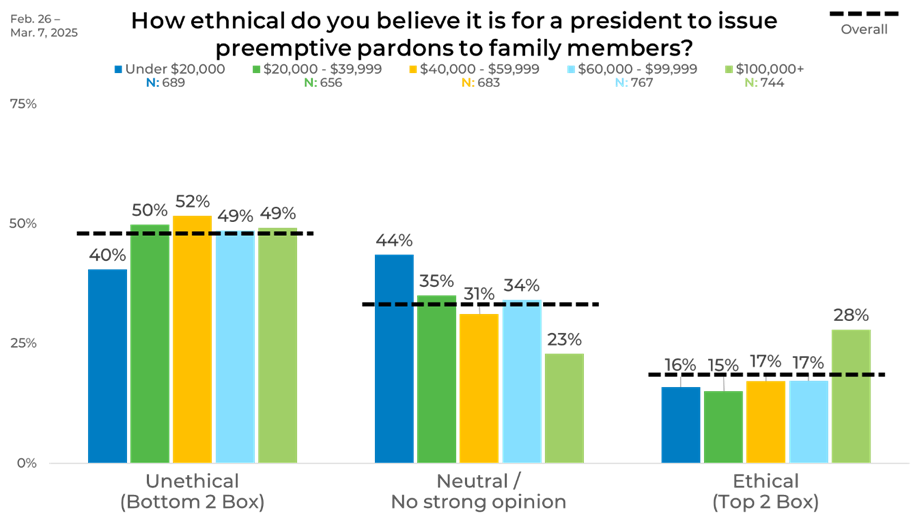
Political Affiliation
Unsurprisingly, opinions by political affiliation were sharply divided. This is most likely because a Democratic president was in office when this occurred. Republicans were the most likely to view preemptive family pardons as unethical (64% B2B), yet also the least likely to view them as ethical (17% T2B). Democrats were more evenly distributed, with only 33% calling it unethical and a higher share (28%) viewing it as ethical. Independents largely leaned critical (50% B2B) with only 12% in favor, while respondents identifying with other political affiliations showed the highest neutrality at 53%.
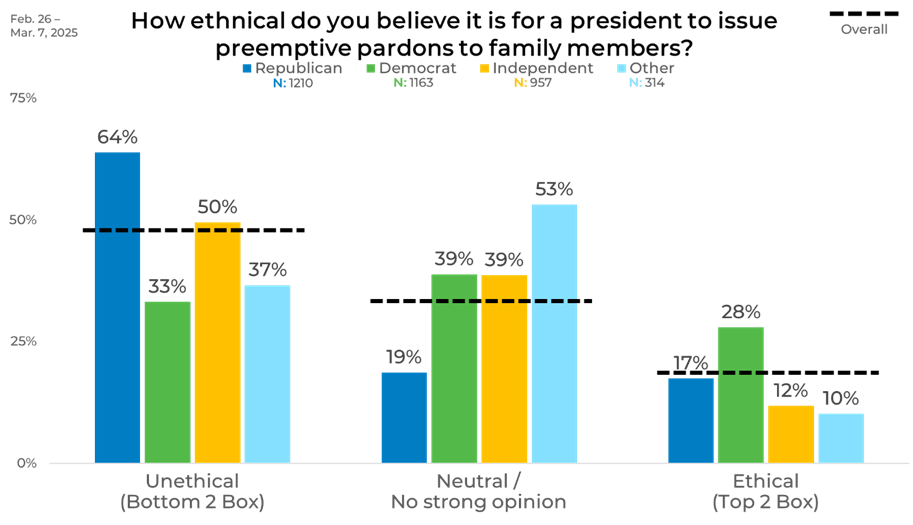
Ethnicity
A respondent’s ethnic background plays into their opinions on preemptive pardons for family members. Caucasian respondents had the highest rate of disapproval (54%), while African American participants were less critical (31%) and more likely to view it as ethical (28%). Asian or South Asian, Hispanic/Latino, and other respondents largely mirrored each other, with around 40% viewing the act as unethical and a high level of neutrality, indicating nuanced perspectives within these communities.
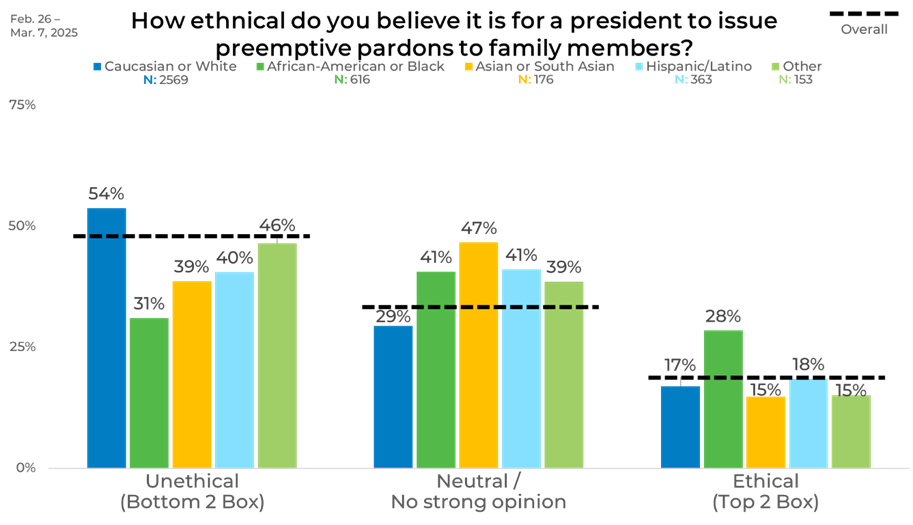
Panel
Opinion differences were also very prevalent when looking at the panel from which a respondent originates. Panels J and L showed the strongest disapproval, with over half labeling the action unethical. Panels B and F followed closely at 47%. Panel P stood out with only 27% viewing the action as unethical and with the highest ethical approval at 32%. These differences show how results can shift depending on the panel, underscoring the value of blending data for a fuller perspective.
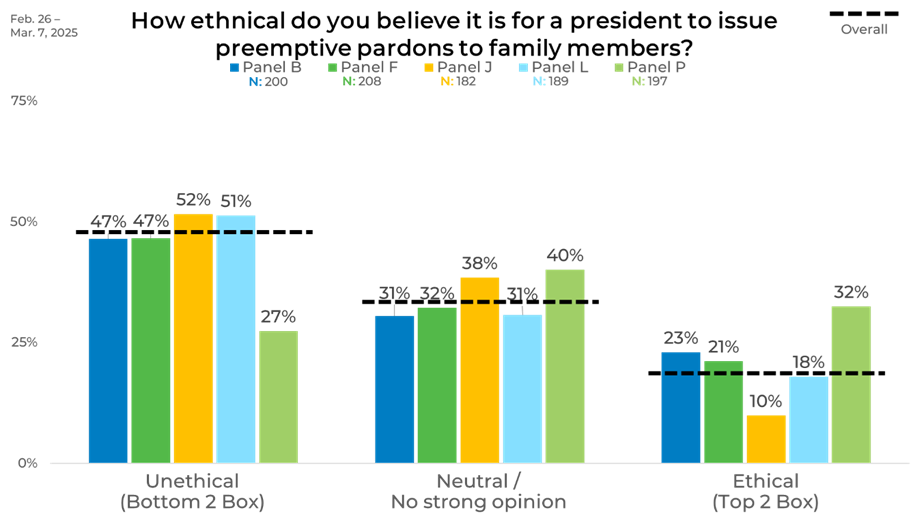
To best mitigate bias that can occur with panel selection, learn more about EMI’s strategic sample blending approach.

